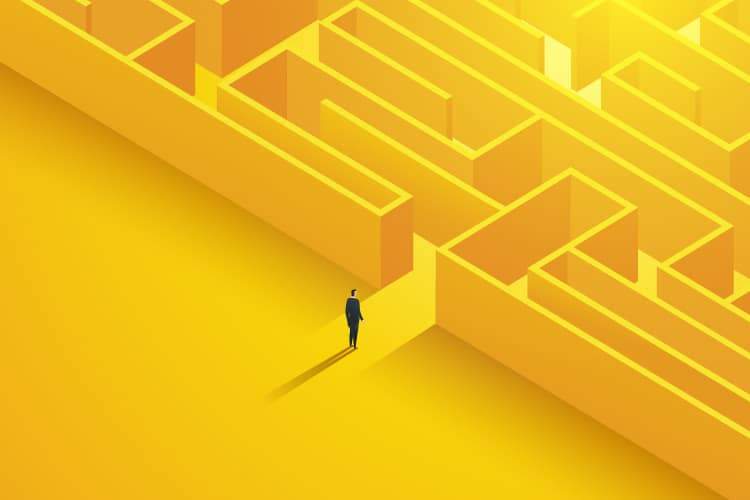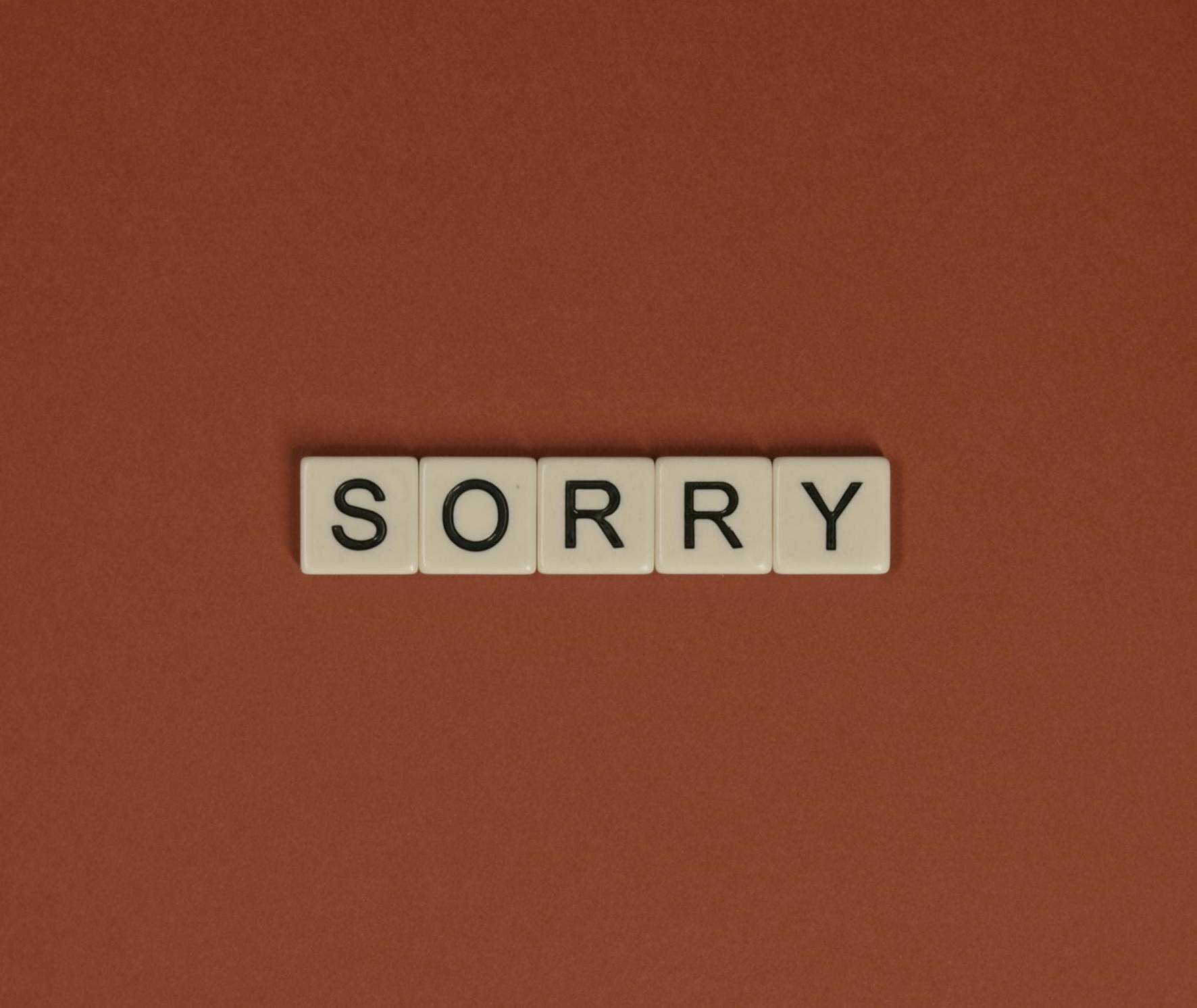Our brains are hardwired to dislike uncertainty.
Whether it was our ancient ancestors depending on unpredictable weather conditions to have enough to eat, or our very modern lives characterized by nonstop change, information overload, and unstable global situations—that deep sense of not-knowing, to our nervous systems, can feel like a threat.
It’s understandable that for most of us, uncertainty often brings up feelings of discomfort and anxiety. And of course, unpredictable situations can sometimes pose more than just feelings of discomfort—that’s what’s at the root of our fear in the first place. It makes sense that we would want to get away from them as quickly as we can.
That feeling that we know what’s going on and that we’re in control, even if it’s an illusion, can offer a momentary sense of stability, like we’re grabbing onto a life raft in rough waters.
The result is that we often react by trying to get back to a place of certainty. Maybe we dig in our heels a little bit more, get into an argument in the comment section, or retreat to social environments where our already-held ideas are reinforced for us rather than challenged. All of these function as self-soothing strategies.
But is feeling unsure always a negative thing?
Here’s a counter-intuitive truth that recent research is revealing: a regular dose of uncertainty can actually be good for us. As much as we have that carry-over from our ancestors that a lack of certainty automatically means “danger,” we’re also wired to be able to handle this state—and to be able to use uncertainty as a tool for growth.
How Uncertainty Makes Us Stronger & Smarter
In her book Uncertain: The Wisdom and Wonder of Being Unsure, journalist Maggie Jackson delves into the idea that uncertainty is not a hindrance but a gateway to new possibilities. By reframing our perspective on the unknown, she found, we can encourage a mindset that welcomes the richness and potential inherent in uncertain situations.
The more she looked at the research, the more Jackson came to understand that too much certainty isn’t always a good thing, and that there are important social, emotional, and psychological benefits to welcoming uncertainty.
Neuroplasticity and Adaptation
Our brains possess the remarkable ability to adapt and rewire in response to new experiences. This adaptability is crucial in navigating uncertainty as it allows us to develop resilience, which in turn makes it more likely that we will survive and thrive in the face of unpredictability. We learn from past experiences, we explore new options, and that learning creates new neuropathways that allow us to come up with even more creative solutions to novel challenges.
The Exploration of Possibilities
By embracing uncertainty, current research suggests, individuals open themselves up to a world of possibilities. Instead of viewing the unknown as a threat, we can allow it to foster a sense of curiosity and excitement about what the future may hold.
Embracing uncertainty can be especially beneficial when it comes to working across differences: when we’re stubbornly sure of our position, we tend to be closed off to other perspectives and choices. By contrast, when we’re open to saying I don’t know or I can learn something here, then we create room for fresh ideas and solutions to be introduced.
In other words, one possible reaction to uncertainty is fear. Another is curiosity. And curiosity, it turns out, is a characteristic that people who have a higher tolerance for stress all tend to share.
Building Mental Strength
There are a few important psychological benefits that can arise from embracing the unknown, including increased cognitive flexibility, heightened creativity, and a greater capacity for resilience.
It’s not hard to see the flipside, too: that there are real downsides to resisting that liminal place of not-knowing. Research indicates that the need for too much certainty tends to make us brittle and anxious; in contrast, expanding our tolerance for uncertainty keeps us nimble. In addition, we get a mood boost from encountering a fresh challenge and engaging our curiosity and creativity to come up with a path forward.
How Mindfulness Can Unlock the Cognitive Benefits of Uncertainty
As we navigate the complexities of uncertainty, the practice of mindfulness shows up as a powerful ally.
Mindfulness offers practical tools to strengthen resilience and inner calm, even in the face of what we don’t know and can’t control. Maggie Jackson’s work offers insights around how mindful practices can help us face uncertainty with more courage and openness.
Present-Moment Awareness
Our discomfort with not-knowing comes when we try to anchor ourselves in the future: What’s going to happen? How can I make sure everything works out? What if it doesn’t? Mindfulness encourages us to anchor ourselves in the present moment, fostering a sense of groundedness and clarity, even in the midst of uncertainty.
Nonjudgmental Acceptance
Uncertainty often triggers a cascade of troubling thoughts and emotions: fear, doubt, anger, anxiety, stress. Mindfulness invites us to observe these thoughts and emotions with nonjudgmental acceptance, allowing them to arise and pass without clinging or aversion. If we cling to stress, we’re going to make choices based on resistance to that stress. On the other hand, if we allow that stress to just be there, without trying to “fix” it, then our curiosity or wonder can emerge, and we have a better chance of making clear-headed choices.
Cultivating Resilience
Mindfulness practices have been shown to enhance resilience—the ability to adapt to challenging life experiences. By developing a mindful approach to uncertainty, we can build our resilience muscles, strengthening our capacity to respond, cope, and grow amidst life’s unknowns.
Making Peace With the Unresolved
Ultimately, mindfulness invites us to embrace uncertainty as an integral part of the human journey, even—or perhaps especially—when there isn’t a ready resolution. Sometimes, there aren’t apparent answers, at least not for a long while. Very often, we don’t have control over outcomes. Even with all our creativity and curiosity, sometimes we can’t figure it out, and all that’s left is to make peace with what is unresolved. This might include moving through a grieving process, choosing forgiveness when it’s very difficult, or offering ourselves heaps of self-compassion. In situations like these, mindful practices become an even more powerful path of growth, discovery, and self-transformation.
Learning to make friends with the unsettling human experience of uncertainty can take time. As with all challenging emotions, half of the work is just learning to stay in the same room when that prickly sense of not-knowing arises, to let it just be there without denying, distracting, distancing, or numbing ourselves to it.
Mindfulness offers a practical way to engage with uncertainty, to open ourselves to it as a teacher, and to integrate the wisdom it offers.







